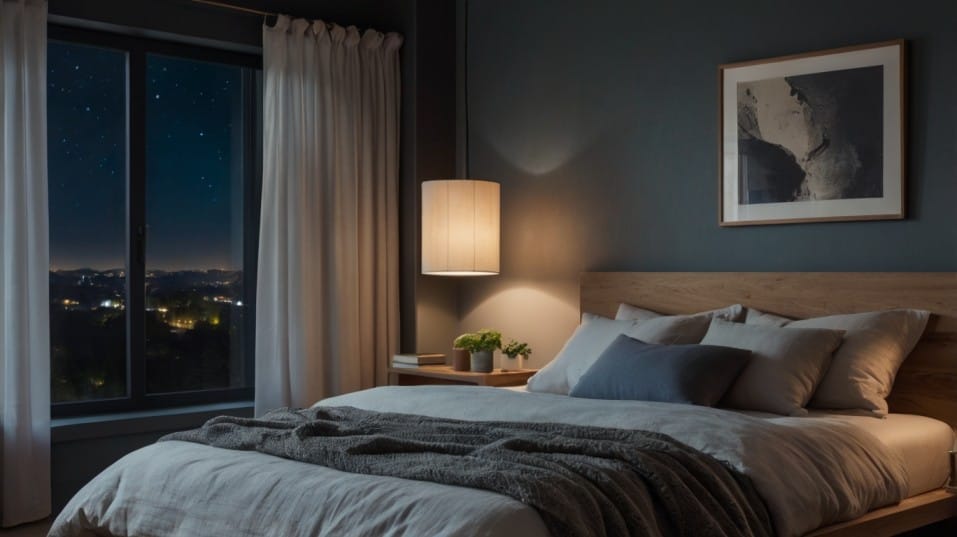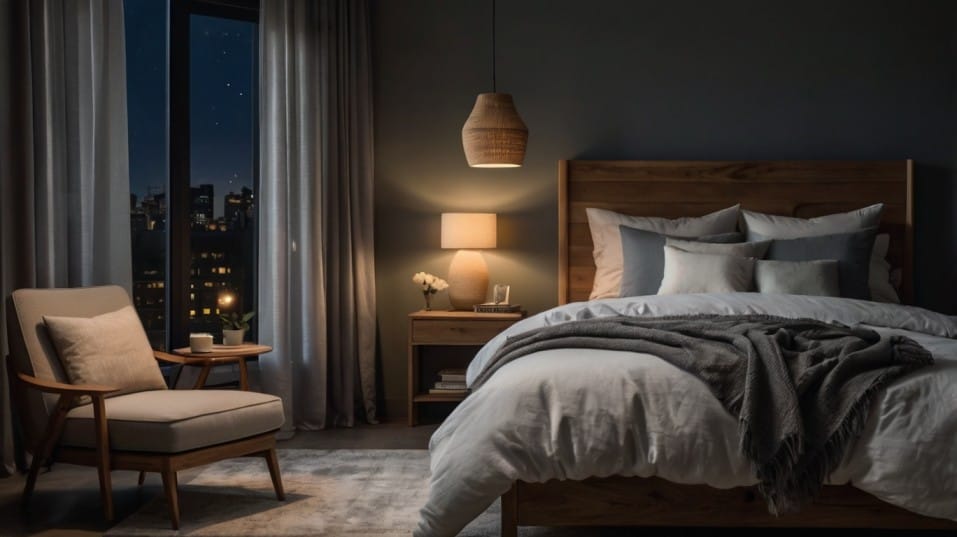The Connection Between Sleep and Inflammation
Upgrade your sleep to slash inflammation, boost recovery, sharpen focus, and unlock real daily energy—with simple, science-backed strategies.

Ever wonder why you still feel drained even when you’re eating clean and training hard?
If your sleep isn’t dialed in, your body stays stuck in survival mode—and hidden inflammation builds fast. The good news? Turning things around is simpler than you think.
With a few key sleep upgrades, you can cool internal fires, boost recovery, and unlock real energy again. Let’s break down how better sleep flips the switch on inflammation—and why it’s your best move yet.
How Sleep Impacts Inflammation (and Why It Matters)
Sleep is your body’s built-in recovery protocol. Every night, your brain and immune system tag-team to flush out toxins, rebuild tissues, and regulate inflammatory processes.
This isn’t optional maintenance. It’s critical if you want high energy, strong immunity, sharp mental performance, and fast recovery.
Deep sleep, especially slow-wave sleep (SWS), drives a surge in anti-inflammatory cytokines—molecules that repair and calm your system. Meanwhile, sleep deprivation flips that balance upside down.
Studies from institutions like the University of California, Berkeley have shown that even one bad night spikes pro-inflammatory markers like C-reactive protein (CRP) and tumor necrosis factor-alpha (TNF-α).

Chronic inflammation isn’t just "feeling sore" or "getting sick a lot."
It’s the silent energy vampire that drags down your metabolism, blunts your workout gains, dulls your cognitive sharpness, and even erodes your emotional resilience over time.
The brutal part? Sleep loss and inflammation feed each other. Less sleep creates more inflammation, and more inflammation disrupts your ability to fall into deep, healing sleep. It’s a loop you need to break—and you can, fast.
How Better Sleep Slashes Inflammation and Supercharges Your Body
The right sleep strategy doesn’t just lower inflammation—it sets off a chain reaction of upgrades across your entire system. Here's how it works:
- Reduced Cortisol Levels: Cortisol, your primary stress hormone, should taper off at night. Good sleep patterns flatten nighttime cortisol spikes, keeping your inflammatory load lower around the clock.
- Improved Insulin Sensitivity: Sleep helps regulate blood sugar levels. Better glucose control means fewer blood sugar crashes, which are known to drive inflammatory cascades.
- Optimized Growth Hormone Release: During deep sleep, your body produces growth hormone (GH)—essential for muscle repair, fat metabolism, and keeping inflammation at bay.
- Stronger Immune Surveillance: Sleep boosts the production of natural killer (NK) cells, which fight off viruses, rogue cells, and inflammatory triggers.
When you give your body consistent, high-quality sleep, you’re not just avoiding bad outcomes—you’re actively upgrading how your body and mind perform every day.
Real-World Sleep Upgrades That Kill Inflammation at the Source
Forget complicated biohacks or expensive gadgets. Here’s what actually moves the needle:
Lock In a Consistent Sleep Window Your body craves predictability. Set a non-negotiable sleep and wake time that works seven days a week.
Even shifting bedtime by an hour on weekends can throw off your circadian rhythm and ramp up inflammatory markers by Monday.
Win the Light Game Light is a direct lever on your sleep quality. Get 10–20 minutes of bright, natural light as early as possible after waking. In the evening, crush down screen exposure and overhead lights 90 minutes before bed.
If you’re stuck indoors, use a low-wattage lamp or consider blue-light blocking glasses—but don’t overcomplicate it. Less light, better sleep.
Eat and Move at the Right Times Food timing is a hidden sleep killer. Late-night snacking keeps your metabolism running hot when your body should be cooling down. Aim to finish eating at least two hours before bed.
Same goes for late-night cardio or heavy lifting. Exercise early and let your cortisol peak during the day, not at 9PM.
Engineer a Sleep-First Bedroom Think cold, dark, and quiet. Keep your room around 65°F (18°C) for optimal body cooling. Blackout curtains are a worthy investment. Ditch all blinking lights from electronics.
White noise machines or earplugs can block out random disturbances if you live somewhere noisy.
Build a Brain-Off Ramp Sleep doesn’t come with an on/off switch. You need a wind-down routine that signals to your brain it’s time to shift gears.
A short breathwork session (like 4-7-8 breathing), a few pages of non-stimulating fiction, or even simple stretching primes your nervous system for deep sleep. Skip anything that feels like "work"—your brain needs the signal that the day is over.
Supplement Smartly (If Needed) If your foundations are solid but you need extra support, low-dose magnesium glycinate, L-theanine, or a sleep-supportive herbal tea (think chamomile or valerian root) can help smooth out the transition into sleep. But no supplement beats fixing your core habits first.
The Payoff: What You’ll Notice When You Sleep Right
Better sleep doesn't take weeks to show results. Lock in even three to five nights of optimized sleep, and you'll feel the difference:
- Morning energy that doesn’t need five coffees to kick in.
- Faster recovery from workouts, with less muscle soreness.
- Clearer thinking, better decision-making, sharper memory.
- More emotional resilience—you’ll react better under pressure.
- Natural appetite control without white-knuckle willpower.
Inflammation isn’t just something your doctor warns you about later in life. It’s slowing you down right now. Better sleep turns that around—and it stacks wins you can feel daily.
Final Thoughts
You can’t out-train, out-diet, or out-supplement broken sleep. Sleep is the foundation that everything else builds on. Lower inflammation, faster recovery, stronger focus, better moods—it all starts when you start sleeping smarter.
This isn’t about perfection. It’s about real, sustainable upgrades that fit into your daily life without feeling like a second job.
Start by locking down your sleep-wake schedule, fixing your light exposure, and giving yourself a real wind-down window each night. Start tonight. Because when your sleep gets better, everything gets better.




